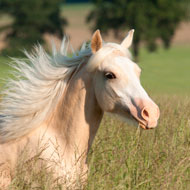Equine health survey receives "phenomenal" response

Data from the survey is being analysed by the Royal Veterinary College.
Animal charity the Blue Cross has reported a threefold increase in the number of responses to the annual National Equine Health Survey (NEHS).
This year, data on common horse health problems was collected from 12,301 horses, ponies, donkeys and mules in the UK. This represents a staggering 300 per cent increase on last year's figure of 4,730.
NEHS was first launched in 2010 by the Blue Cross and BEVA and has since become an annual survey.
Data is now being analysed by vets at the Royal Veterinary College. Results will be published later this summer and the results used to determine priorities for future research, training and education.
Findings will also hold the answer to some topical questions on equine infectious diseases, ragwort and atypical myopathy.
Blue Cross education officer Gemma Taylor said: "This year we have been overwhelmed by the phenomenal level of response. Not only are we grateful to the major equestrian organisations for their support but we would also like to thank every individual owner or keeper who took part.
"It is only with your continued help that we can make a difference to the future health of our precious horses."



 The RCVS has announced a new version of its 1CPD mobile app, with enhanced features for veterinary surgeons and veterinary nurses to record their continuing professional development.
The RCVS has announced a new version of its 1CPD mobile app, with enhanced features for veterinary surgeons and veterinary nurses to record their continuing professional development.